Search Results for: Wolves
Skip to resultsCan’t find what you’re looking for? Visit our FAQ page.
408 results for: Wolves
-
 Life
LifeCaribou migrate farther than any other known land animal
Caribou in Alaska and Canada migrate up to 1,350 kilometers round trip each year, a study reports.
By Sofie Bates -
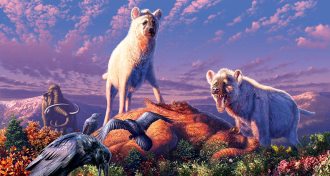 Paleontology
PaleontologyHyenas roamed the Arctic during the last ice age
Two teeth confirm the idea that hyenas crossed the Bering land bridge into North America, a study finds.
-
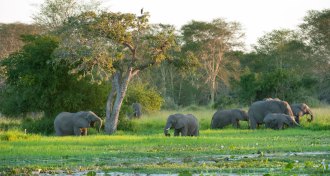 Ecosystems
EcosystemsWar wrecked an African ecosystem. Ecologists are trying to restore it
Bringing back big predators to Gorongosa, once a wildlife paradise in Mozambique, is just one piece of the puzzle in undoing the damage there.
By Jeremy Rehm -
 Animals
AnimalsPandas’ share of protein calories from bamboo rivals wolves’ from meat
The panda gut digests protein in bamboo so well that the animal’s nutritional profile for calories resembles a wolf’s.
By Susan Milius -
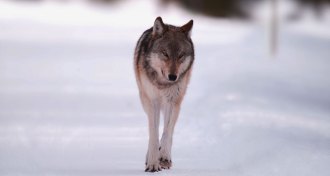 Animals
Animals‘Epic Yellowstone’ captures the thriving ecosystem of the world-famous park
A new documentary series about Yellowstone displays the dynamic, dramatic and exciting ecosystem that thrives within the park’s gates.
By Jeremy Rehm -
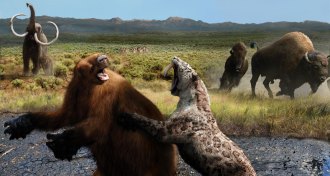 Paleontology
PaleontologySaber-toothed cats were fierce and family-oriented
New details shift the debate on whether Smilodon lived and hunted in packs, and answer questions about other behaviors and abilities.
-
 Tech
TechReaders respond to classroom robots, soil erosion and more
Readers had comments and questions about robots in classrooms, benzodiazepines and more.
-
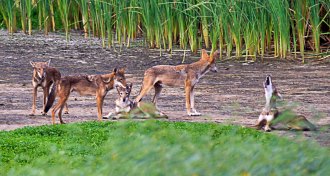 Genetics
GeneticsDNA from extinct red wolves lives on in some mysterious Texas coyotes
Mystery canids on Texas’ Galveston Island carry red wolf DNA, thought to be extinct in the wild for 40 years.
-
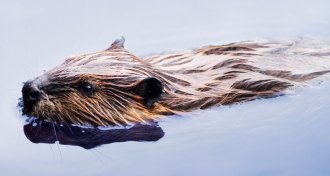 Ecosystems
EcosystemsBeavers are engineering a new Alaskan tundra
Climate change has enabled the recent expansion of beavers into northwestern Alaska, a trend that could have major ecological consequences for the region in the coming decades.
By Sid Perkins -
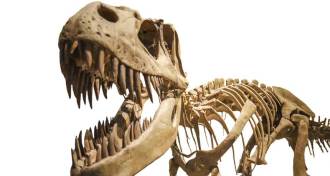 Paleontology
PaleontologyT. rex pulverized bones with an incredible amount of force
Tyrannosaurus rex’s powerful bite and remarkably strong teeth helped the dinosaur crush bones.
-
 Genetics
GeneticsNorth America’s earliest dogs came from Siberia
North America’s first dogs have few descendants alive today, a study of ancient DNA suggests.
By Bruce Bower -
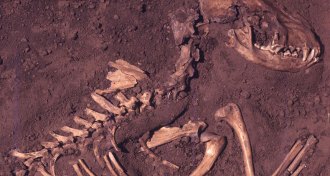 Archaeology
ArchaeologyDogs lived and died with humans 10,000 years ago in the Americas
Dogs unearthed at sites in Illinois were older than originally thought.
By Bruce Bower